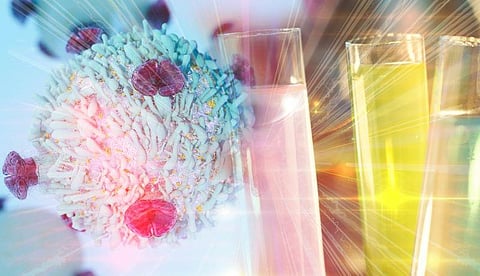WEDNESDAY, March 20, 2024 (HealthDay News) -- Second primary malignancies (SPMs) represent a small proportion of adverse events (AEs) reported by patients receiving chimeric antigen receptor T-cell (CAR T-cell) therapy, according to a letter to the editor published online March 14 in Blood.
Noting that CAR T-cell-eligible patients are often heavily pretreated and have a higher risk for treatment-related AEs, Magdi Elsallab, M.D., Ph.D., from Harvard Medical School in Boston, and colleagues analyzed the U.S. Food and Drug Administration AE Reporting System database to quantify reports of SPMs after CAR T-cell therapy.
The researchers identified 12,394 unique reports of CAR T-cell therapy AEs; 2,225 of these were associated with the System Organ Class "Neoplasms benign, malignant, and unspecified." Overall, 536 SPM reports (4.3 percent) were included after application of exclusion criteria. Most of the reports included axicabtagene ciloleucel and tisagenlecleucel (51.7 and 33.0 percent, respectively). By high-level group term, the most frequent SPMs were leukemias (62.1 percent), which represented 2.7 percent of all CAR T-cell therapy reports, followed by skin neoplasms (10.1 percent). Leukemias included myelodysplastic syndromes, acute myeloid leukemias, and T-cell large granular lymphocytic leukemia (208, 106, two cases, respectively).
"We will continue to monitor the data released by the FDA to learn more about CAR T-associated risks," Elsallab said in a statement. "However, it's crucial to stress that the benefits of CAR T-cell therapies still outweigh the risks for the approved indications."
Several authors disclosed ties to the pharmaceutical industry.
Abstract/Full Text (subscription or payment may be required)


